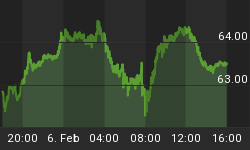While corporate earnings fell by some 38 percent in the first quarter, a dismal performance by just about anyone's reckoning, Wall Street took heart that the results were not as bad as the consensus estimates had predicted. Straws were frantically grasped. Buoyed by the resulting talk of "green shoots" and the hope of a relatively quick economic recovery, the Dow Jones Industrial Average surged nearly 40% from its lows.
Since the crisis began, Wall Street cheerleaders and politicians have seized on every scrap of data to support the notion that a recovery is imminent. When such a mentality takes hold, just as happened in the dot-com bubble and the real estate bubbles, the importance of actual earnings diminishes greatly.
Now, three months into our apparent recovery, corporations have continued to issue somber sales outlooks, and insiders are heavy net sellers. When second quarter corporate earnings are announced in July, they will confirm that an economic recovery was likely a Wall Street pipe dream. Not surprisingly, springtime optimism is fading and markets are falling back.
Already major official bodies, not renowned for their integrity in offering politically depressing news, are gradually releasing uncomfortable economic news. On June 22nd, the World Bank announced that global GDP would fall from its previous forecast of negative 1.7 percent to negative 2.9 percent, a drop of 70%.
On the same day, the White House belatedly announced that it expects the official unemployment rate will reach 10 percent. Including all the unemployed and unwilling part-time workers, this translates into an unofficial rate of some 20 percent. The unemployment rate at the height of the 1930's depression was around 30 percent, just 50 percent higher than today.
Ivory tower economists have always believed that consumption is the key for economic growth. With roughly 72 percent of U.S. GDP derived from consumption, they argue that recovery will only come about from increased consumer spending. Since unemployment and plummeting home and stock prices are hurting consumers, the economists' solutions look to government to pick up the slack. With this wayward hypothesis, the federal government has set about bailing out businesses and directing money toward consumers in the form of "stimulus."
To some extent, this injection of trillions of dollars into the economy temporarily contained the financial panic, leading some observers to declare, "Mission Accomplished." However, the question remains as to whether we are experiencing a true bull market or merely a bear market rally. To justify the case of a bull market, it is necessary to buy into the consumer demand hypothesis. I, on the other hand, believe that the disproportionate level of consumer spending was only a symptom of an underlying disease.
The real problem was and is a long record of monetary and fiscal recklessness by the federal government. This has allowed the natural economic equilibrium to destabilize, and for consumption to become the dominant sector of our economy. This kind of maladjustment is almost never seen as a problem, while it lasts. If given the choice, most people would prefer to solely consume and not produce. But as we all learn when we get our first credit cards, the fun stops when the bill comes.
So, while the government's measures have contained acute financial panic in the stock market, consumers remain in a state of shock and are deleveraging fast. This is an expected result of people reacting reasonably to a darkening economic landscape. To the economists, however, it will be seen as justification for another, bigger "rescue plan." But the more the government intervenes, the more asset prices are held artificially high, the longer it will ultimately take for the needed restructuring to happen. The result will be a longer recession, and perhaps a depression.
We feel that, fed on political and Wall Street hype, the current U.S. bear market rally could last into July or August. It could even result in a Dow of 10,000 before reality dawns and pulls it back down. I currently expect the secular bear market to continue for another three years, most likely with a series of bear market rallies and endless talk of "green shoots."
Despite the market noise, realists will focus on the growing evidence of depression in America and expect U.S. markets to decline in real terms until perhaps 2012. In the meantime, they may be reminded not of Wall Street's "green shoots" but of the words of Johnny Mercer's song which ran, "... And soon I'll hear old winter's song. But I'll miss you most of all, my darling, when autumn leaves start to fall..."
For a more in-depth analysis of our financial problems and the inherent dangers they pose for the U.S. economy and U.S. dollar, read Peter Schiff's newest book "The Little Book of Bull Moves in Bear Markets." Click here to order your copy now.
For a look back at how Peter predicted our current problems read the 2007 bestseller "Crash Proof: How to Profit from the Coming Economic Collapse." Click here to order a copy today.
More importantly, don't wait for reality to set in. Protect your wealth and preserve your purchasing power before it's too late. Discover the best way to buy gold at www.goldyoucanfold.com. Download Euro Pacific's free Special Report, "Peter Schiff's Five Favorite Investment Choices for the Next Five Years", at http://www.europac.net/report/index_fivefavorites.asp. Subscribe to our free, on-line investment newsletter, "The Global Investor" at http://www.europac.net/newsletter/newsletter.asp. And now watch the latest episode of Peter's new video blog, "The Schiff Report", at http://www.europac.net/videoblog.asp.















